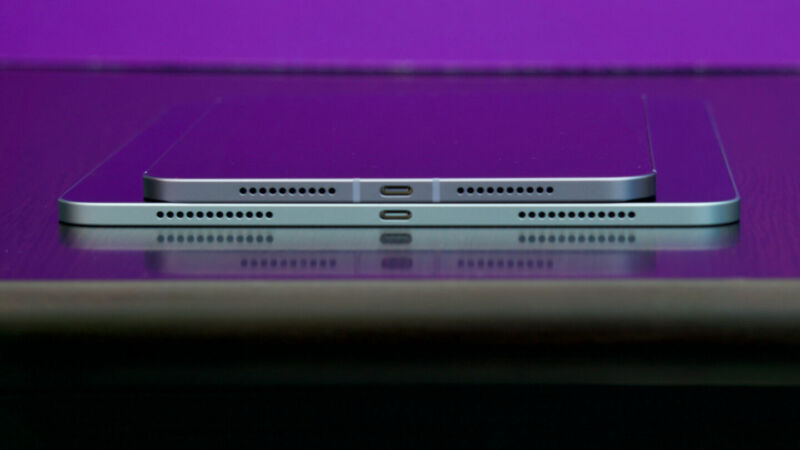
The European Commission has announced its intent to enact legislation that would mandate all consumer electronic devices sold in the European market within certain categories have a USB-C port for charging.
Should the new rules be enacted, they would make it illegal to sell consumer electronic devices that lack that port. The law would apply to smartphones, portable video game consoles, portable speakers, cameras, and some types of headphones—but it would not apply to devices that only use wireless charging.The legislation also would not prevent devices from having additional ports for charging, as long as they also have a USB-C charging port.
Additional related mandates include a "harmonized" standard for fast-charging technology and a requirement to offer mobile devices without the charger bundled, something some companies have already started doing on their own to reduce waste and cut costs.
Manufacturers would have two years to become compliant. The focus now is on the devices that are receiving the charge, but the commission said it intends to turn its attention to power adapters as well in the near future.
The stated objective is to reduce e-waste, on the basis that consumers discard unwanted chargers when they buy new devices. The legislation is also positioned as a consumer convenience move—if every portable mobile device uses the same port, then there will be less confusion about finding the right charger either in the consumer's personal stash of wires or on store shelves.
Commissioner Thierry Breton said the following in a press release about the legislation:
Chargers power all our most essential electronic devices. With more and more devices, more and more chargers are sold that are not interchangeable or not necessary. We are putting an end to that. With our proposal, European consumers will be able to use a single charger for all their portable electronics—an important step to increase convenience and reduce waste.
This new legislation may be the culmination of a yearslong effort in the European Union to cut down the number of charging standards. Not long ago, there were dozens. Now, almost all mobile devices use one of three ports: USB-C, Micro USB, or Lightning.
Micro USB has been on its way out for the past few years, as it has gradually been replaced by USB-C in Android phones and many other devices. But the big impact here may be on Apple, which only just last week introduced new iPhones that still use the company's proprietary Lightning port even as most of the rest of the industry has settled on USB-C.
In a statement to the Associated Press, Apple said:
We remain concerned that strict regulation mandating just one type of connector stifles innovation rather than encouraging it, which in turn will harm consumers in Europe and around the world.
Thierry responded to the criticism in a press briefing. "If Apple wants to continue to have their own plug, they will have the ability to do it," he said. "It's not against innovation, it's just to make the lives of our fellow citizens a little bit more easy."
There have already been several credible reports that Apple is considering dropping the charging port from the iPhone entirely in future models, instead opting to rely on wireless charging based on both the Qi standard and the company's MagSafe tech. The proposed legislation would not prevent that.
Technology - Latest - Google News
September 23, 2021 at 11:25PM
https://ift.tt/3lVXJpu
European Union announces plans to require all mobile devices to use USB-C - Ars Technica
Technology - Latest - Google News
https://ift.tt/2AaD5dD
Shoes Man Tutorial
Pos News Update
Meme Update
Korean Entertainment News
Japan News Update
Bagikan Berita Ini














0 Response to "European Union announces plans to require all mobile devices to use USB-C - Ars Technica"
Post a Comment